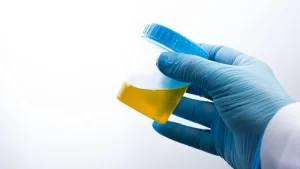The THC cartridge industry has experienced rapid growth, accompanied by concerns about product quality, safety, and consistency. In response, third-party testing has emerged as a critical practice to ensure that THC cartridges meet rigorous quality assurance standards. This discussion explores the importance of third-party testing and its role in upholding quality and safety in the thc carts industry.
Ensuring Product Safety:
- Contaminant Detection: Third-party testing allows for the detection of contaminants such as pesticides, heavy metals, and residual solvents in THC cartridges. By identifying potential contaminants, manufacturers can mitigate health risks and ensure that products meet safety standards for consumption.
- Microbial Analysis: Testing for microbial contaminants such as bacteria, mold, and yeast helps prevent the distribution of contaminated THC cartridges that could pose health hazards to consumers. Third-party laboratories conduct microbial analysis to verify product safety and compliance with regulatory requirements.
Maintaining Product Quality:
- Potency Testing: Third-party laboratories assess the potency of THC cartridges to ensure accurate labeling and dosing. By quantifying the levels of cannabinoids such as THC and CBD, testing helps consumers make informed decisions and ensures that products deliver the intended effects consistently.
- Terpene Profiling: Terpene analysis provides valuable information about the aromatic and therapeutic properties of THC cartridges. Third-party testing enables manufacturers to verify the terpene profile of their products, enhancing sensory experiences and ensuring product consistency.
Building Consumer Trust:
- Transparency and Accountability: Third-party testing fosters transparency and accountability within the THC cartridge industry. By providing independent verification of product quality and safety, testing builds consumer trust and confidence in the products they purchase.
- Compliance with Regulations: Many jurisdictions require THC cartridge manufacturers to undergo third-party testing to comply with regulatory requirements. Adhering to testing standards demonstrates a commitment to legal compliance and responsible business practices, enhancing the industry’s reputation and credibility.
Conclusion:
Third-party testing is indispensable for ensuring the safety, quality, and consistency of the best THC carts in the rapidly evolving cannabis industry. By detecting contaminants, verifying potency, and promoting transparency, testing enhances consumer trust, fosters regulatory compliance, and drives continuous improvement across the industry. As the THC cartridge market continues to expand, robust third-party testing standards will remain essential for upholding product integrity and safeguarding public health.





















